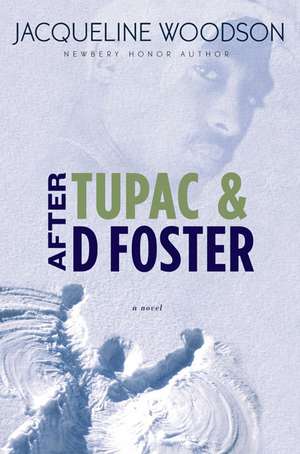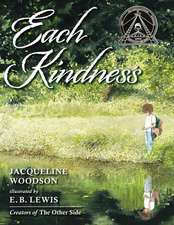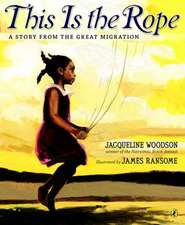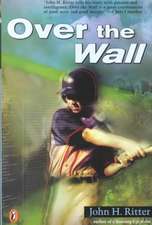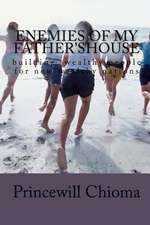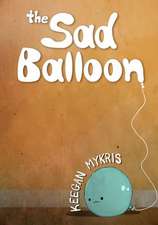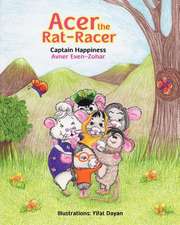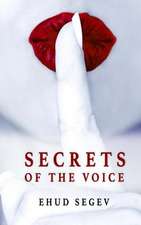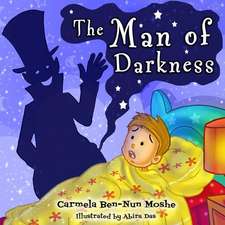After Tupac and D Foster
Autor Jacqueline Woodsonen Limba Engleză Hardback – 31 dec 2007 – vârsta de la 10 ani
Vezi toate premiile Carte premiată
Newbery Medal (2009), Capitol Choices: Noteworthy Books for Children and Teens (2009), Children's Book Committee Award (2009)
D Foster showed up a few months before Tupac got shot that first time and left us the summer before he died.The day D Foster enters Neeka and her best friend’s lives, the world opens up for them. D comes from a world vastly different from their safe Queens neighborhood, and through her, the girls see another side of life that includes loss, foster families and an amount of freedom that makes the girls envious. Although all of them are crazy about Tupac Shakur’s rap music, D is the one who truly understands the place where he’s coming from, and through knowing D, Tupac’s lyrics become more personal for all of them.
The girls are thirteen when D’s mom swoops in to reclaim D—and as magically as she appeared, she now disappears from their lives. Tupac is gone, too, after another shooting; this time fatal. As the narrator looks back, she sees lives suspended in time, and realizes that even all-too-brief connections can touch deeply.
A Discussion Guide to After Tupac and D Foster by Jacqueline Woodson
Preț: 103.07 lei
Nou
Puncte Express: 155
Preț estimativ în valută:
19.73€ • 21.44$ • 16.58£
19.73€ • 21.44$ • 16.58£
Carte indisponibilă temporar
Doresc să fiu notificat când acest titlu va fi disponibil:
Se trimite...
Preluare comenzi: 021 569.72.76
Specificații
ISBN-13: 9780399246548
ISBN-10: 0399246541
Pagini: 153
Dimensiuni: 147 x 214 x 18 mm
Greutate: 0.29 kg
Editura: Putnam Publishing Group
ISBN-10: 0399246541
Pagini: 153
Dimensiuni: 147 x 214 x 18 mm
Greutate: 0.29 kg
Editura: Putnam Publishing Group
Notă biografică
Born on February 12th in Columbus, Ohio, Jacqueline Woodson grew up in Greenville, South Carolina, and Brooklyn, New York and graduated from college with a B.A. in English. She now writes full-time and has recently received the Margaret A. Edwards Award for lifetime achievement in writing for young adults. Her other awards include a Newbery Honor, two Coretta Scott King awards, two National Book Award finalists, and the Los Angeles Times Book Prize. Although she spends most of her time writing, Woodson also enjoys reading the works of emerging writers and encouraging young people to write, spending time with her friends and her family, and sewing. Jacqueline Woodson currently resides in Brooklyn, New York.
Extras
The summer before D Foster’s real mama came and took her away, Tupac wasn’t dead yet. He’d been shot five times—two in the head, two down by his leg and thing and one shot that went in his hand and came out the other side and went through a vein or something. All the doctors were saying he should have died and were bringing other doctors up to his room to show everybody what a medical miracle he was. That’s what they called him. A Medical Miracle. Like he wasn’t even a real person. Like he was just something to be looked at and turned this way and that way and poked at. Like he wasn’t Tupac.D Foster showed up a few months before Tupac got shot that first time and left us the summer before he died. By the time her mama came and got her and she took one last walk on out of our lives, I felt like we’d grown up and grown old and lived a hundred lives in those few years that we knew her. But we hadn’t really. We’d just gone from being eleven to being thirteen. Three girls. Three the Hard Way. In the end, it was just me and Neeka again.
The first time Tupac got shot, it was November 1994. Cold as anything everywhere in the city and me, Neeka, D and everybody else was shivering our behinds through the winter with nobody thinking Pac was gonna make it. Then, right after he had some surgery, he checked himself out of the hospital even though the doctors was trying to tell him he wasn’t well enough to be doing that. That’s when everybody around here started talking about what a true gangsta he was. At least that’s what all the kids were thinking. The churchgoing people just kept saying he had God with him. Some of the parents were saying what they’d always been saying about him—that he was heading right to what he got because he was a bad example for kids, especially black kids like us. Crazy stuff about Tupac being a disgrace to the race and blah, blah, blah. The wannabe gangsta kids just kept saying Tupac was gonna get revenge on whoever did that to him.
But when I saw Tupac like that—coming out of the hospital, all skinny and small-looking in that wheelchair, big guards around him—I remember thinking, He ain’t gonna try to get revenge on nobody and he ain’t trying to be a disgrace to anybody either. Just trying to keep on. Even though he wasn’t smiling, I knew he was just happy and confused about still being alive.
Went on like that all winter long, then February came and they sent Tupac to jail for some dumb stuff and people started talking about that—the negative peeps talking about that’s where he needed to be and all the rest of us saying how messed up the law was when you didn’t look and act like people thought you should.
Spring came and Pac dropped his album from prison and this one song on it was real tight, so we all just listened to it and talked about how bad-ass Pac was—that he wasn’t even gonna let being in jail stop him from making his music. Me and Neeka and D had all turned twelve by then, but we still believed stuff—like that we’d grow up and marry beautiful rapper guys who’d buy us huge houses out in the country. We talked about how they’d be all crazy over us and if some other girl walked by who was fine or something, they wouldn’t even turn their heads to look because they’d be so in love with us and all. Stupid stuff like that.
In jail, Pac started getting clear about thug life, saying it wasn’t the right thing. He got all righteous about it and whatnot, and with all the rappers shooting on each other and stuff, it wasn’t hard to agree with him.
Time kept passing on that way. Things and people changing. First, D turned thirteen, then me and Neeka were right there behind her—us all turning into teenagers, getting body, getting tall, boys acting stupid over us.
Seems soon as we started settling into all that changing, D’s mama came—took her away from us.
And time kept on creeping.
Then Tupac went and died and it got me thinking about D. About the short time she was with us and about how you could know somebody real good but not know them at the same time. And it made me want to remember. Yeah, I guess that’s it. I guess that’s what I’m trying to do now. . . .
The first time Tupac got shot, it was November 1994. Cold as anything everywhere in the city and me, Neeka, D and everybody else was shivering our behinds through the winter with nobody thinking Pac was gonna make it. Then, right after he had some surgery, he checked himself out of the hospital even though the doctors was trying to tell him he wasn’t well enough to be doing that. That’s when everybody around here started talking about what a true gangsta he was. At least that’s what all the kids were thinking. The churchgoing people just kept saying he had God with him. Some of the parents were saying what they’d always been saying about him—that he was heading right to what he got because he was a bad example for kids, especially black kids like us. Crazy stuff about Tupac being a disgrace to the race and blah, blah, blah. The wannabe gangsta kids just kept saying Tupac was gonna get revenge on whoever did that to him.
But when I saw Tupac like that—coming out of the hospital, all skinny and small-looking in that wheelchair, big guards around him—I remember thinking, He ain’t gonna try to get revenge on nobody and he ain’t trying to be a disgrace to anybody either. Just trying to keep on. Even though he wasn’t smiling, I knew he was just happy and confused about still being alive.
Went on like that all winter long, then February came and they sent Tupac to jail for some dumb stuff and people started talking about that—the negative peeps talking about that’s where he needed to be and all the rest of us saying how messed up the law was when you didn’t look and act like people thought you should.
Spring came and Pac dropped his album from prison and this one song on it was real tight, so we all just listened to it and talked about how bad-ass Pac was—that he wasn’t even gonna let being in jail stop him from making his music. Me and Neeka and D had all turned twelve by then, but we still believed stuff—like that we’d grow up and marry beautiful rapper guys who’d buy us huge houses out in the country. We talked about how they’d be all crazy over us and if some other girl walked by who was fine or something, they wouldn’t even turn their heads to look because they’d be so in love with us and all. Stupid stuff like that.
In jail, Pac started getting clear about thug life, saying it wasn’t the right thing. He got all righteous about it and whatnot, and with all the rappers shooting on each other and stuff, it wasn’t hard to agree with him.
Time kept passing on that way. Things and people changing. First, D turned thirteen, then me and Neeka were right there behind her—us all turning into teenagers, getting body, getting tall, boys acting stupid over us.
Seems soon as we started settling into all that changing, D’s mama came—took her away from us.
And time kept on creeping.
Then Tupac went and died and it got me thinking about D. About the short time she was with us and about how you could know somebody real good but not know them at the same time. And it made me want to remember. Yeah, I guess that’s it. I guess that’s what I’m trying to do now. . . .
Descriere
A Newbery Honor book. A lot can happen to three girls in a two-year period--especially when the rap music of Tupac Shakur is the glue holding them together.
Premii
- Newbery Medal Honor Book, 2009
- Capitol Choices: Noteworthy Books for Children and Teens Recommended, 2009
- Children's Book Committee Award Winner, 2009
- Volunteer State Book Awards Nominee, 2010
- Virginia Readers Choice Award Nominee, 2011
